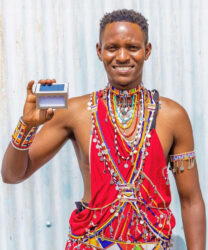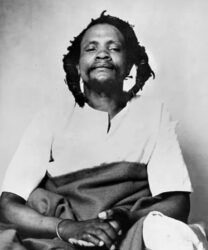Wangarĩ Maathai
Wangarĩ Muta Maathai was a renowned Kenyan environmentalist, political activist, author, and Nobel Peace Prize laureate. She was best known for founding the Green Belt Movement in 1977, an environmental organization dedicated to tree planting, environmental conservation, and women's empowerment. She is probably Kenya's most well-known and honored woman in recent history.
Maathai’s work focused on combating deforestation, soil erosion, and the broader environmental challenges facing Kenya and Africa. Her initiative not only aimed to restore the environment but also to improve the lives of women by involving them in the tree-planting efforts, thus addressing both ecological and socio-economic issues simultaneously.
Maathai’s activism extended beyond environmental concerns; she was a vocal advocate for democracy and human rights. Her efforts often put her at odds with the Kenyan government, leading to multiple arrests and harassment. Despite these challenges, her resolve remained unshaken, and she continued to champion the cause of sustainable development and social justice.
In 2004, Maathai was awarded the Nobel Peace Prize for her contribution to sustainable development, democracy, and peace. She was the first African woman to receive the award, and her recognition brought international attention to the critical issues she championed. Maathai’s legacy includes not only the millions of trees planted but also the inspiration she provided to countless individuals and organizations committed to environmental and social change.
Her autobiography, “Unbowed,” chronicles her personal journey and the broader socio-political landscape of Kenya. Wangari Maathai’s impact endures through her ongoing influence on environmental and women’s rights movements worldwide, embodying a vision of a more equitable and sustainable future.
Famous Quote
It’s the little things citizens do. That’s what will make the difference. My little thing is planting trees.
— Wangarĩ Maathai




